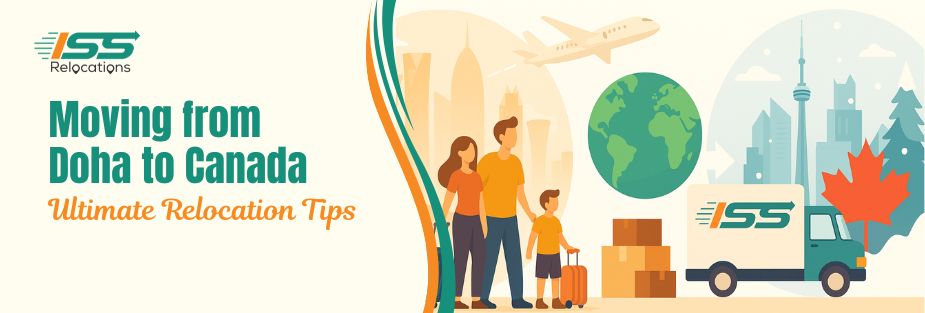
How to Unpack After a Move
Moving into a new home can be an exciting and overwhelming experience, and unpacking is an essential part of the settling-in process. Proper unpacking ensures that you can easily access your belongings, get your new home organized, and feel at ease in your new surroundings. However, unpacking can also be a time-consuming task, especially if you don’t have a plan in place.
Unpacking is an important part of moving into a new home. It’s a time to take stock of your belongings, get organized, and feel at home in your new surroundings. However, unpacking can also be a difficult task, especially if you don’t have a plan in place. In this article, we’ll explore tips and tricks for unpacking after a move, ensuring a hassle-free experience.
Preparation for Unpacking
Before you start unpacking, it’s essential to take stock of your belongings and create an organized plan for unpacking. Here are some tips to get you started:
Take Inventory of Belongings: Before you start unpacking, take an inventory of your belongings. Make a list of everything you’ve packed, and check each item off as you unpack it. This will help ensure that nothing gets lost in the move.
Organize a Plan for Unpacking: Create a plan for unpacking, starting with the essential rooms first. This might include the bedroom, kitchen, and bathroom. Consider organizing your unpacking plan by room and by priority. This will help ensure that you unpack efficiently and effectively.
Clean Your New Home: Make sure your new home is clean and ready for unpacking. This might include cleaning the floors, wiping down surfaces, and making sure the bathrooms are in working order. A clean home will make the unpacking process easier and more enjoyable.
Unpacking Room by Room
When it comes to unpacking, it’s essential to start with the essential rooms first. Here are some tips for unpacking efficiently and effectively: Start with Essential Rooms: Start by unpacking the essential rooms first, such as the bedroom, kitchen, and bathroom. These are the rooms that you’ll likely use right away, and getting them set up will help you feel more at home.
Unpack Efficiently: Unpack one room at a time, and focus on one task at a time. For example, start by unpacking all the boxes in the bedroom before moving on to the kitchen. This will help you stay focused and avoid getting overwhelmed.
Avoid Clutter: Avoid clutter by finding a place for everything. This might mean taking the time to organize your belongings as you unpack them, or it might mean getting creative with storage solutions.
Dealing with Large and Heavy Items
Unpacking large and heavy items, such as furniture and appliances, can be a challenge. Here are some strategies for dealing with these items:
Hire Professionals: Consider hiring professionals to assist with unpacking and assembly. This can save you time and ensure that your furniture and appliances are properly assembled and set up.
Unpack in Stages: Unpack large and heavy items in stages. Start by unpacking the smaller items, such as linens and accessories, and then move on to the larger items, such as furniture and appliances.
Unpacking Fragile and Valuable Items
Unpacking fragile and valuable items requires extra care and attention. Here are some best practices for handling these items:
Handle with Care: Handle fragile items with care, and use packing materials, such as bubble wrap and packing paper, to protect them during the move.
Store and Secure: Properly store and secure valuable items, such as jewelry and important documents. Consider using a safe or lockbox to store these items. Keep them in a secure location, such as a closet or drawer, and avoid leaving them out in the open.
Unpack Carefully: Unpack fragile and valuable items carefully, one at a time. Take your time, and be gentle when unwrapping them. Avoid using sharp objects, such as scissors or knives, to avoid accidentally damaging the items.
Managing Excess Clutter
Moving is a great opportunity to declutter and minimize excess items. Here are some tips for managing excess clutter:
Sort and Declutter: Sort through your belongings as you unpack them. Consider donating or selling items that you no longer need or want.
Organize Your Space: Once you’ve decluttered, organize your space. Use storage solutions, such as shelves and bins, to keep your belongings organized and easy to access.
Dispose of Unwanted Items: Dispose of unwanted items responsibly. Consider donating items to a local charity, selling items online, or recycling items that can be recycled.
Final Steps
- Once you’ve finished unpacking, there are a few final steps to take:
- Check for Missing or Damaged Items: Check to make sure that all of your items arrived safely and that nothing was lost or damaged during the move. If you do find a missing or damaged item, contact your moving company right away.
- Dispose of Packing Materials: Properly dispose of packing materials, such as boxes and packing paper. Recycle what you can, and dispose of the rest.
- Celebrate: Finally, take the time to celebrate your successful move and unpacking process. Enjoy your new home, and make it your own.
Conclusion
Unpacking after a move can be a difficult task, but with the right plan and strategies, it can be a hassle-free experience. Take inventory of your belongings, create an organized plan for unpacking, and make sure your new home is clean and ready for unpacking. Unpack room by room, starting with the essential rooms first, and avoid clutter by finding a place for everything. When it comes to dealing with large and heavy items and fragile and valuable items, take extra care and consider hiring professionals to assist. Finally, don’t forget to declutter and minimize excess items, and take the time to celebrate your successful move and unpacking process.
If you’re planning a move, consider using a professional relocation company like ISS Relocations. With their expertise and experience, they can help ensure a stress-free move and unpacking process.
Plan Stress-free Move with Top Moving Company in UAE - ISS Relocations

Frequently Asked Questions
What is the best way to unpack after moving for UAE?
The best way to unpack after moving to UAE is to start with essentials like kitchen supplies, bedding, and toiletries. ISS Relocations recommends unpacking room by room, organizing as you go, and breaking down boxes immediately to maintain a clutter-free space. Our professional unpacking services help streamline the process, ensuring your items are placed exactly where you need them.
How long does it take to unpack after a move to UAE?
Unpacking time varies depending on the volume of items and level of organization. On average, it may take a few days to a couple of weeks. With ISS Relocations’ expert unpacking services, you can settle into your new home in UAE faster, as our team efficiently unpacks and organizes your belongings according to your preferences.
Are movers supposed to unpack?
While standard moving services focus on transportation and unloading, some professional movers, like ISS Relocations, offer full unpacking services. We handle everything from placing furniture to organizing household items, making your move to UAE smooth and stress-free.
Do movers and packers unpack after moving to UAE?
Yes, many movers and packers, including ISS Relocations, provide unpacking services upon request. Our team ensures your items are safely unpacked, arranged as per your instructions, and that all packing materials are disposed of properly, allowing you to settle in effortlessly.
What is the best way to unpack after moving?
To unpack efficiently, start with essential items, organize each room separately, and take breaks to avoid burnout. ISS Relocations provides expert unpacking assistance, making the process seamless by arranging furniture, setting up rooms, and ensuring everything is in place.
How do you pack for relocation?
Packing for relocation requires high-quality packing materials, proper labeling, and strategic organization. ISS Relocations offers professional packing services to ensure that fragile and valuable items are packed securely, making the unpacking process much easier once you arrive in UAE.
Will movers unpack for you?
Yes, ISS Relocations offers professional unpacking services where our team carefully unpacks your belongings, arranges them in designated areas, and removes all packing materials. This service helps you settle into your new home quickly and stress-free.
How much do movers charge to unpack?
Unpacking charges vary based on the volume of items, the level of service required, and the location. ISS Relocations offers customized unpacking solutions at competitive prices, ensuring you get the best value for a hassle-free move to UAE.
What does unpacking service include?
Unpacking services typically include unloading boxes, arranging furniture, organizing household items, and removing packing materials. ISS Relocations provides comprehensive unpacking services, ensuring a smooth transition into your new home in UAE with minimal effort on your part.
Moving Company - Recent Blog
Stay informed and prepared for your next move with our latest blogs on moving services in the UAE. From expert packing tips to international relocation guides, ISS Relocations brings you up-to-date insights to make your moving experience smoother, safer, and stress-free.










